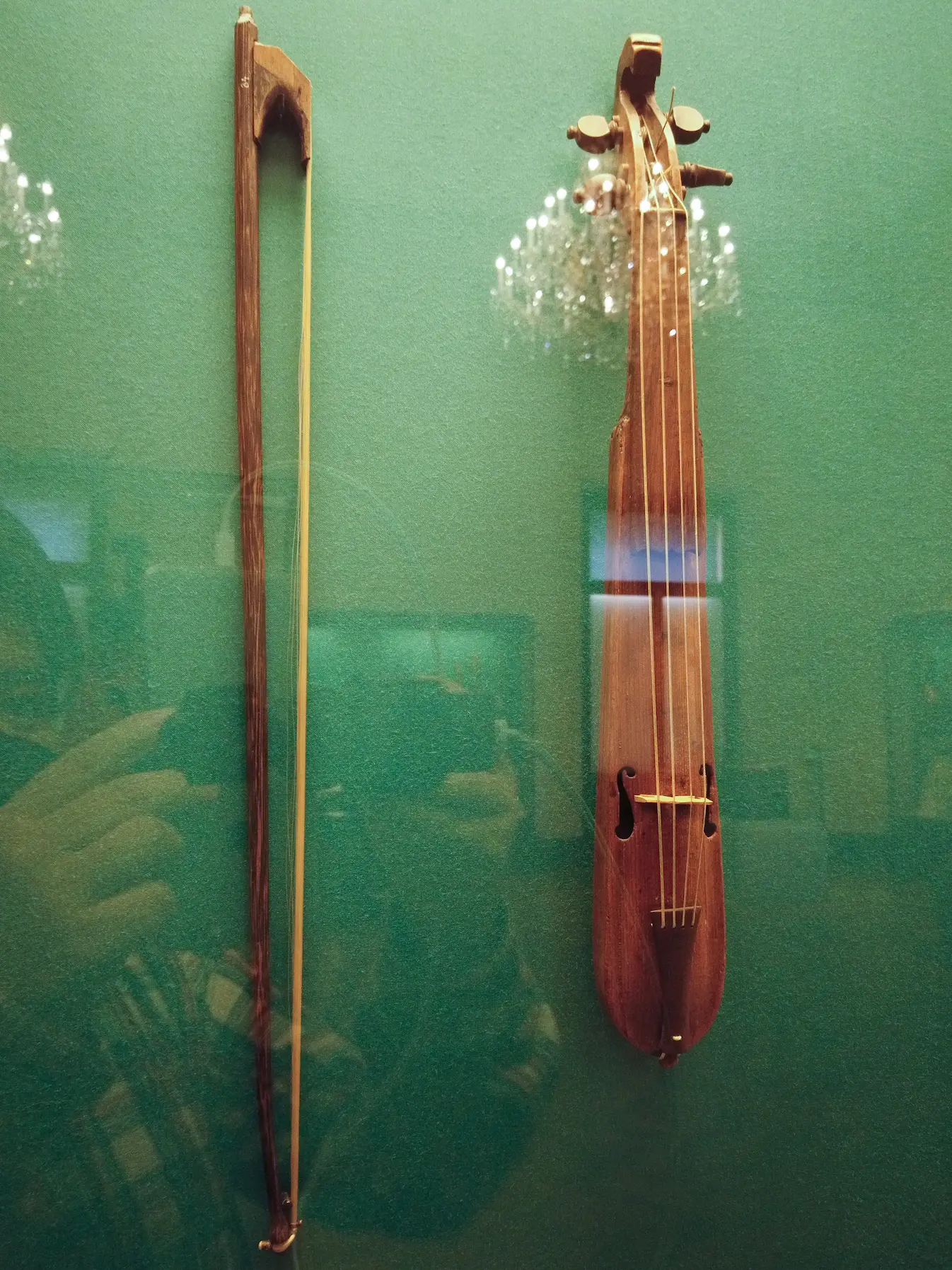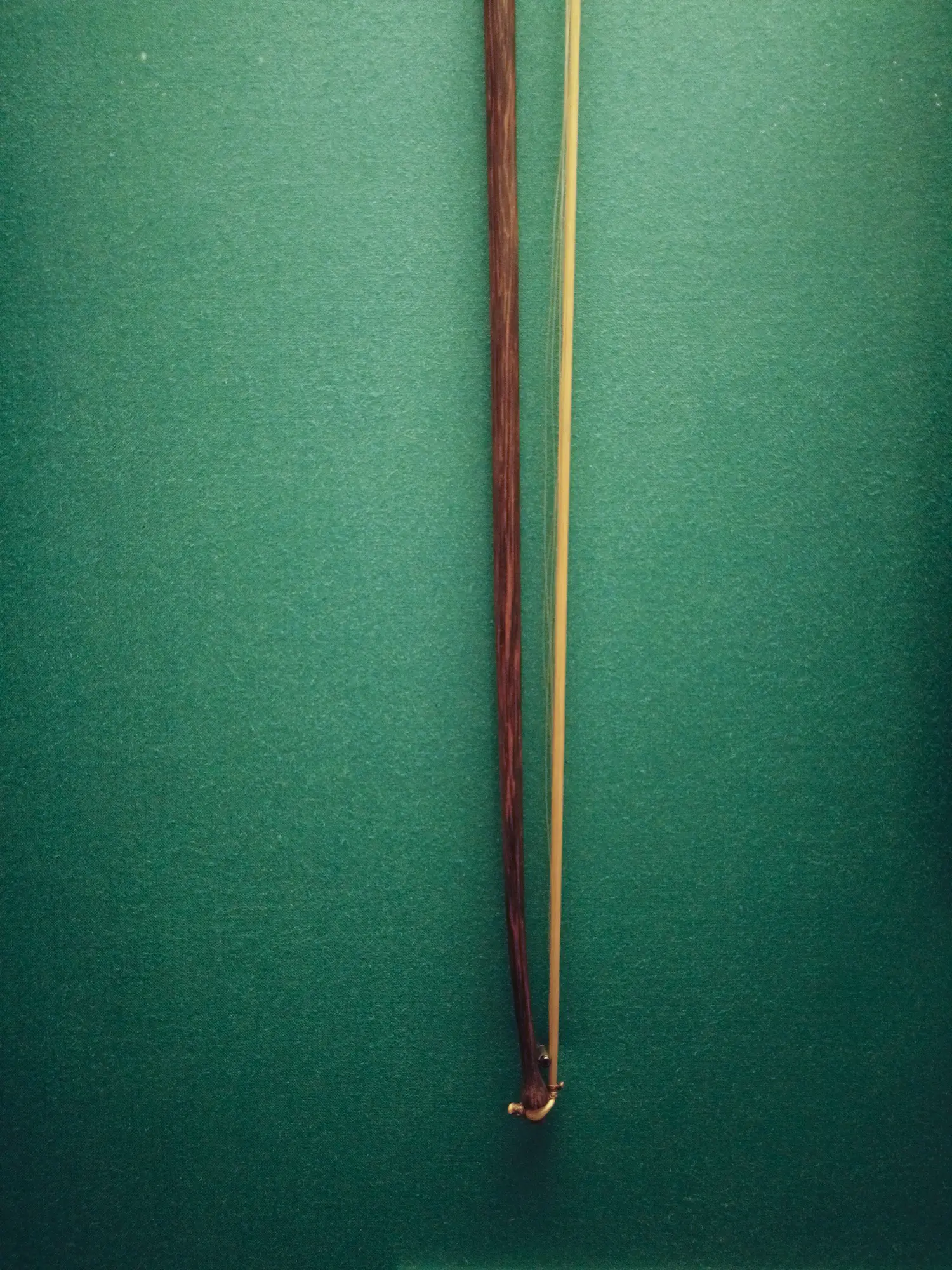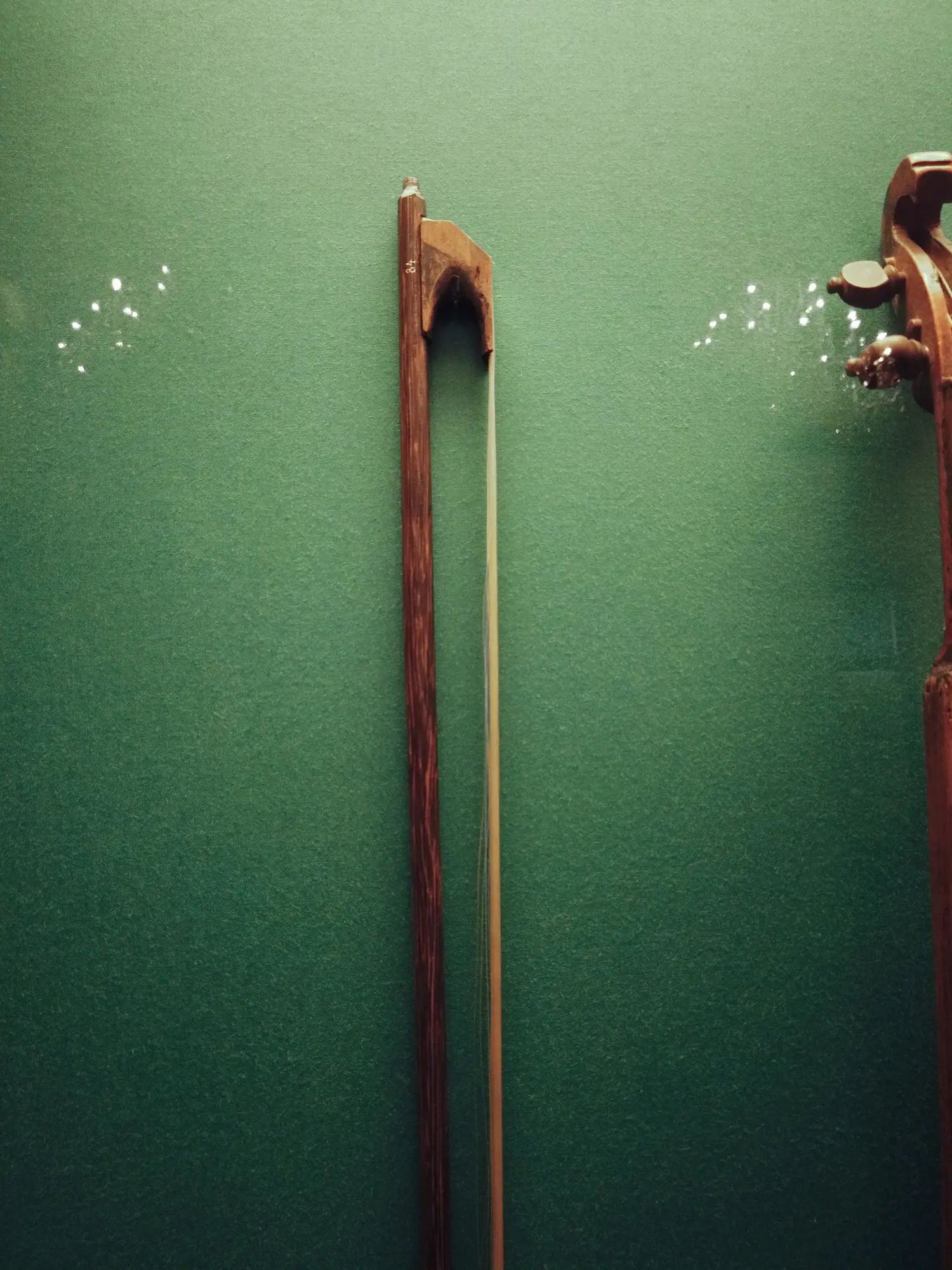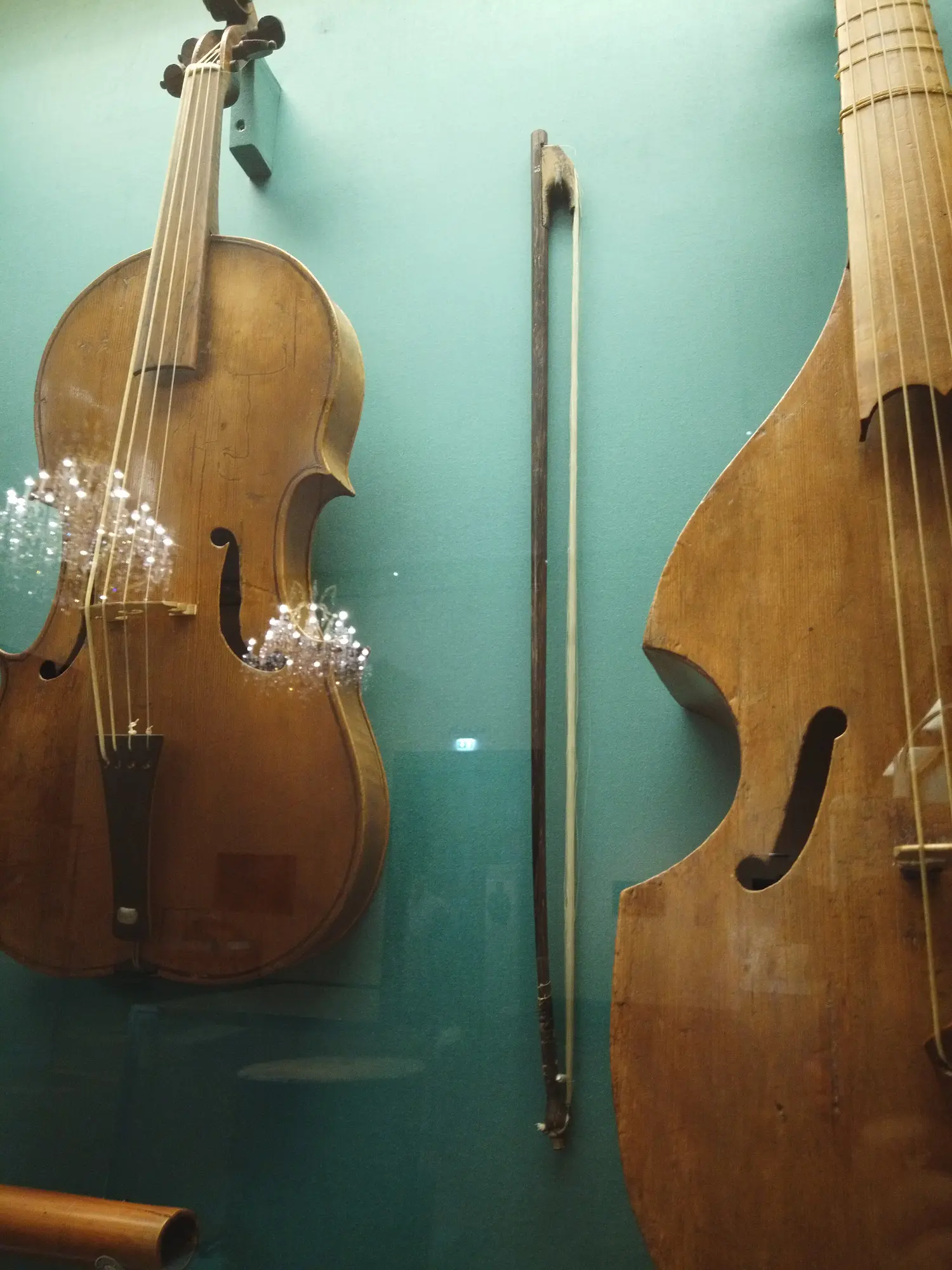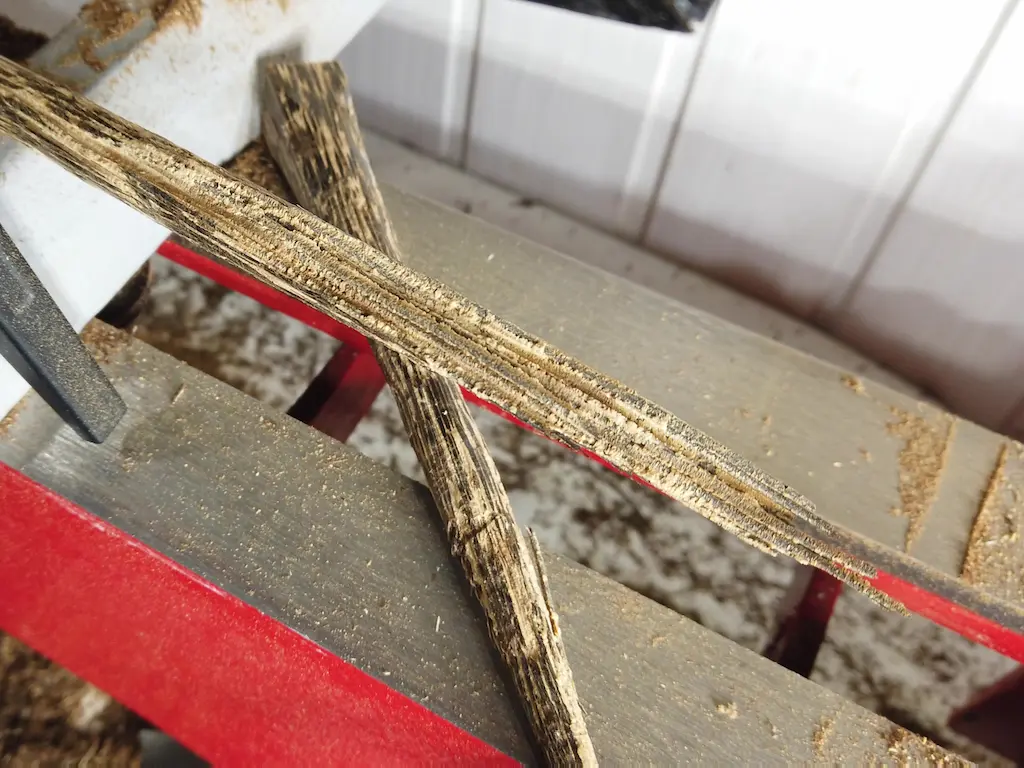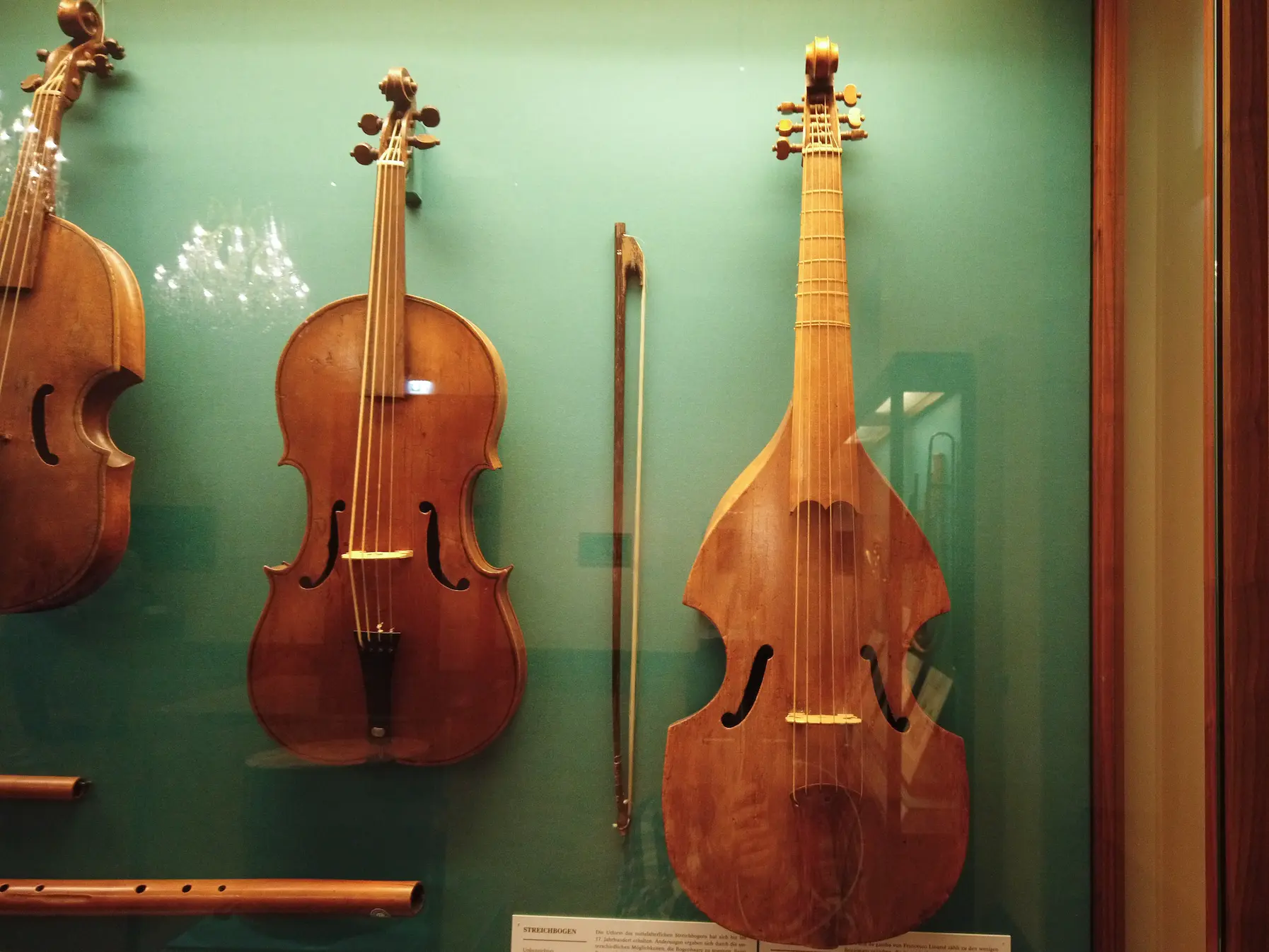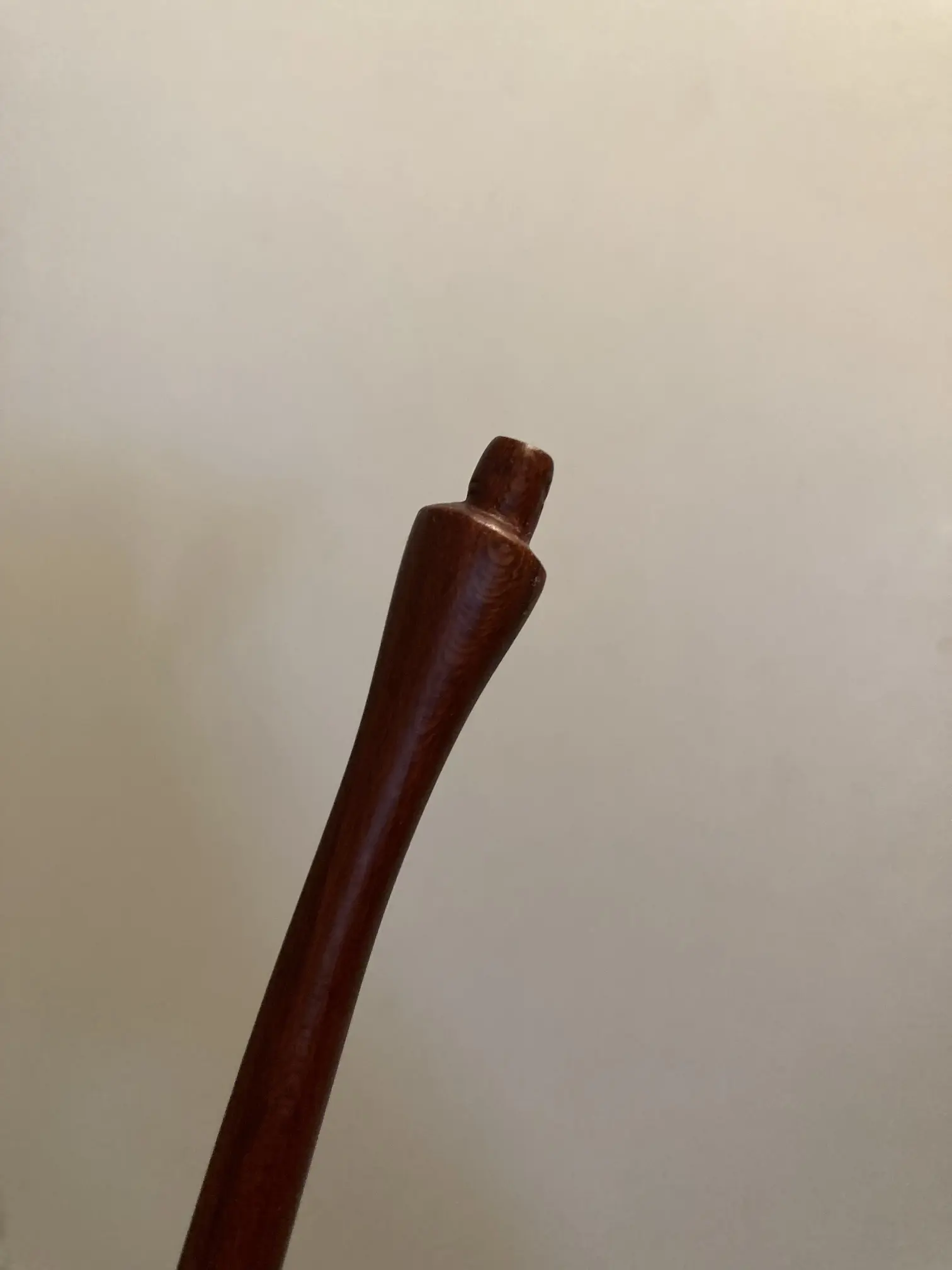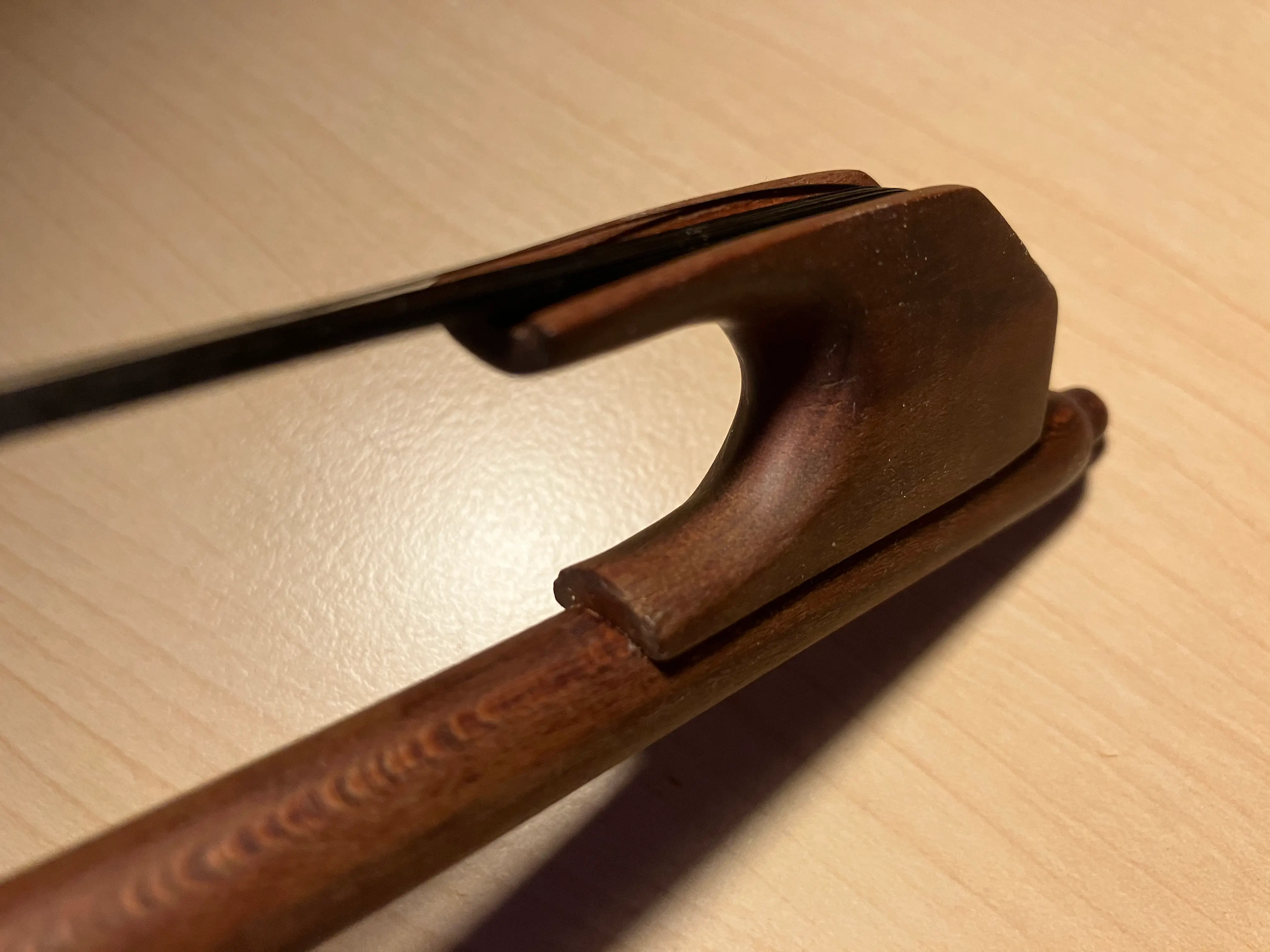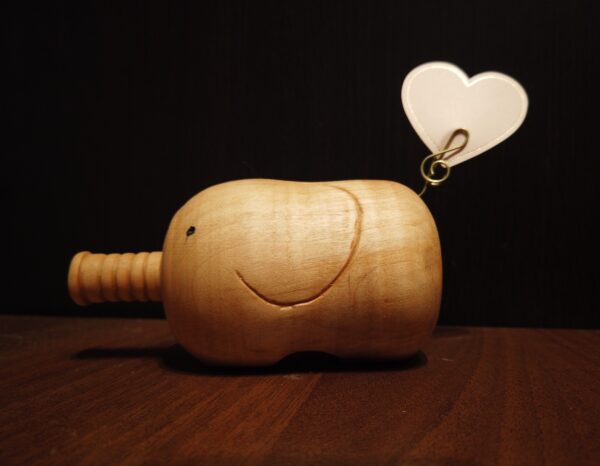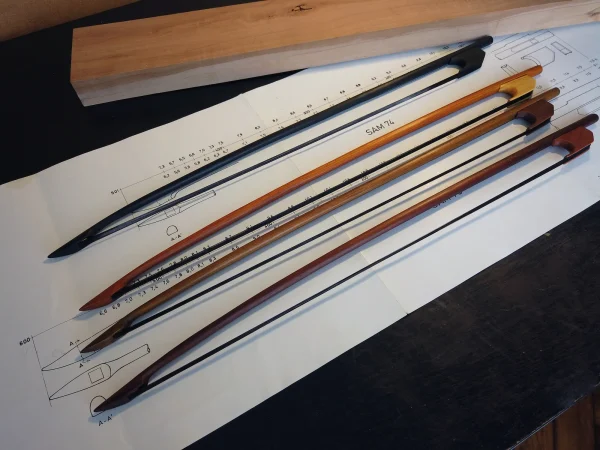Bowmodel 02
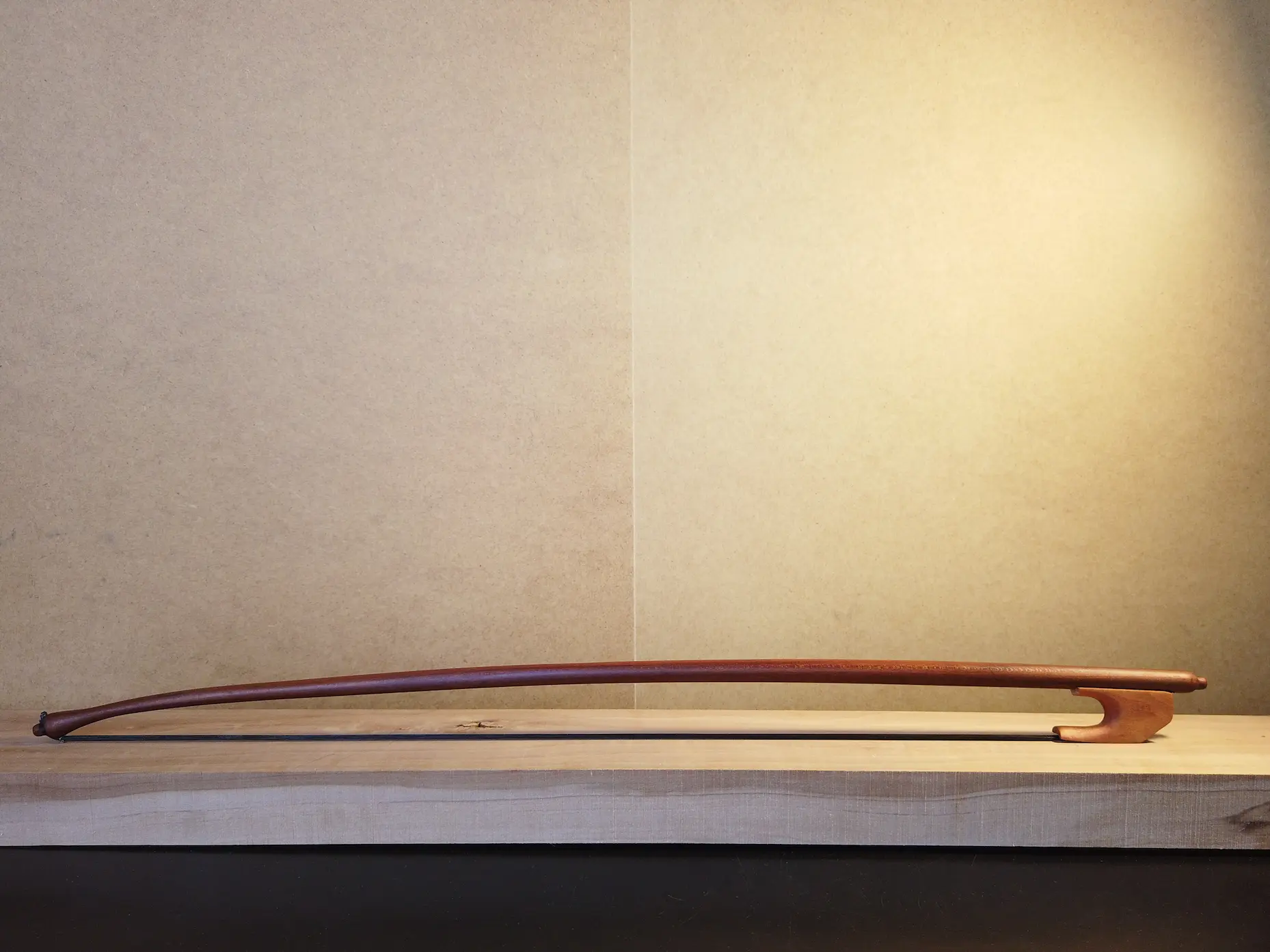
Bowmodel 02
from Kunsthistorisches Museum in Vienna Italy, 16th century (SAM84)
About the original bow
The bow (SAM84) is based on a bow from the Este Collection in the Kunsthistorisches Museum in Vienna, which originally came from Catajo Castle in Padua. (See also bow model 01)
The bow is displayed in the museum together with the SAM 81, which has similar characteristics.
The first feature is that the two bows are made of palm wood, which is found in warmer regions. Because of its hardness and brittle fibres, palm wood is relatively difficult to work with.
The second feature is that both bows are clip-in frogs, which are probably later additions. The frog on this bow has a straight cut tip and looks too thick for the stick (See photo "at the frog").
Thirdly, a bundle of hairs is attached directly to the end of the stick at the tip.
The total length of the SAM84 is 525 mm compared to the 645 mm of the SAM81. SAM81 is almost 20g heavier, and this difference probably has a significant influence on performance.
The bow is displayed in the museum together with the SAM 81, which has similar characteristics.
The first feature is that the two bows are made of palm wood, which is found in warmer regions. Because of its hardness and brittle fibres, palm wood is relatively difficult to work with.
The second feature is that both bows are clip-in frogs, which are probably later additions. The frog on this bow has a straight cut tip and looks too thick for the stick (See photo "at the frog").
Thirdly, a bundle of hairs is attached directly to the end of the stick at the tip.
The total length of the SAM84 is 525 mm compared to the 645 mm of the SAM81. SAM81 is almost 20g heavier, and this difference probably has a significant influence on performance.
My research agenda
Variations of the dimensions
As already mentioned, it is very interesting that there are pairs of similarly shaped bows.
What does this difference in size mean? Were they proportional to the size of the instrument used? If so, to which instruments do they correspond?
My agenda is to determine practically what these different bow sizes are intended for, using the descriptions in the documentation of that period.
Ornaments for bows
Another interesting aspect is the construction of the both ends of this bow.The tip of this bow is shaped like something that has been removed.
If you look at bows in paintings from this period, you can find bows with decorated tips. Therefore, I suspect that this bow also originally had some kind of ornamentation.
I will explore this topic as "The Lost Crown Project".
Specific information
- Length:
- 525mm (original)
- Weight:
- ca. 48g (original)
- Material:
- Stick: Palm wood
Frog: scattered-pored hardwood (Original) - My bows:
- Stick: Plum, Yew
Frog: Plum, Boxwood etc. - *Original data quoted from "Streichbogen" by Rudolf Hopfner

